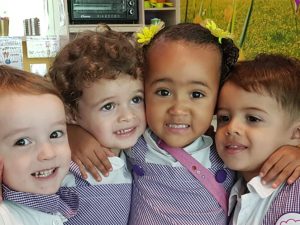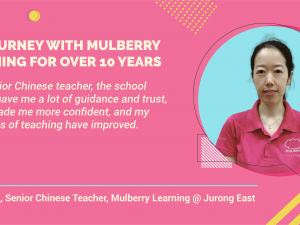
A Problem Child – A Child or A Problem?

It can be alarming to find out that your pre-schooler has been acting out in school. From lying to being disobedient and disregarding rules, there is a wide range of behavioural problems that a child can display in school. So, how do you address a “problem child”?
Young children use their behaviour to show how they are feeling and what they are thinking about. It is not uncommon to observe your toddler turn from a sweet and wanting-to-please cherub into a resolved troublemaker from time to time. When determining the type of discipline strategy to use, consider the possible underlying cause for the behaviour problem.
Here are the 4 most common mischief-makers and how to nip the problem in the bud!
1. The Liar
In most cases, a pre-schooler is too young to understand exactly what a lie is. They are going through a stage of development where the line between reality and fantasy is still a bit fuzzy. When your toddler says she did not colour on the wall while holding onto the crayon, what she means is that she wishes she did not do it because now, clearly mummy and daddy are angry. It takes a lot of courage to tell the truth and it does not always come naturally. When you catch your child telling a lie, take it as a teaching opportunity and explain to them why it is important to be honest instead of punishing them for truth bending when they do not fully understand why it is wrong. When your child realizes that telling the truth is something you value, that will be something they will strive to reach.
2. The Whiner
Pre-schoolers are going through a phase where they are trying to ascertain their independence and getting things done their way. If you say no the first time round, they will try begging and whining to force you to change your mind. In many cases, they are able to successfully annoy people into submission. A whiny child is not being deliberately annoying or spoiled. Instead, it is one of the few ways that young children can express themselves when they are tired, cranky, hungry or just do not want to do what they’re told. Michele Borba, author of Parents Do Make A Difference explains that although toddlers’ language skills are improving, they do not have the vocabulary to describe all of these feelings. So, when you say no to their request to buy a new toy and they start whining, stick to your guns and eventually, they will learn that whining isn’t effective to get what they want.
3. The Impulsive
Children who are not able to understand their emotions are more likely to be impulsive. According to a research study by the Early Childhood Development Agency (ECDA), up to 30% of pre-schoolers have behavioural or emotional regulation difficulties. When you tell them that they cannot buy the big box of chocolates, they will become teary-eyed and may even start stamping their feet to show their unhappiness. A child who is unable to say why they are angry, may hit to show that they are upset. Coach your child through a situation that he or she may have trouble handling. Break down the solution and approach it one step at a time, allowing your child to build up his or her self-regulation management skills. This lets them know that it is okay be angry or be sad but it is not okay to hit or throw a tantrum.
4. The Bully
Teasing, taunting, exclusion and even hitting and other forms of bodily injury, while seemingly unlikely in a preschool classroom, can certainly exist. If your child no longer wants to play with a child they once liked, repeatedly tells you of a certain child who is being mean to them or they come home with unexplained injuries, they may be the target of a bully. If you suspect that your child is being bullied, let them know that you can help with the situation if they tell you what is happening. Guide your child on what to do when confronted with a bully and to always inform the teacher. Empower your child by role-playing with them so that they can practice what they’re going to do the next they are approached by a bully. The goal here is to build up your child’s confidence while giving her a lesson in socialization.
Conclusion
There is no magic wand to wave that can instantaneously instil good behaviour in children. There are many skills and lessons that goes into building up the child’s character that helps them become a better person. An important skill for the child to learn is metacognition (thinking about thinking), which is to be aware of one’s thoughts, feelings, intentions and actions. It is also one of the 16 Habits of Mind which teaches children how to behave intelligently and respond effectively. When children receive the proper guidance during their early childhood years, it will help them overcome challenges in their later years. After all, a problem child is still a child and not a problem that cannot be solved.
References:
https://www.parents.com/toddlers-preschoolers/development/behavioral/how-to-stop-your-childs-whining/
https://www.babycenter.com/0_lying-why-it-happens-and-what-to-do-about-it-ages-3-to-4_65462.bc
https://www.parenting.com/article/why-kids-lie-age-by age
https://www.ecda.gov.sg/growatbeanstalk/Documents/ECCC%202015/ECCC2015%20Plenary%20slides/Dr%20Daniel%20Fung%20ECCC2015%20plenary.pdf






